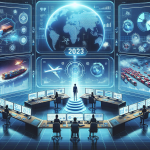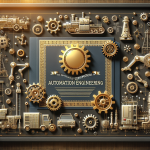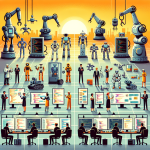The healthcare sector is undergoing a transformation driven by advanced technologies, shifting patient expectations, and an ever-changing landscape of regulations and policies. As we look toward the next decade, several key trends are poised to reshape healthcare assistance, making it more efficient, accessible, and personalized.
1. Telemedicine and Remote Care
The COVID-19 pandemic accelerated the adoption of telemedicine, demonstrating its effectiveness and convenience. In the next decade, we can expect this trend to continue evolving, with advances in virtual consultation platforms, remote monitoring devices, and AI-driven diagnostic tools. Healthcare systems will increasingly leverage telehealth solutions to provide care to patients in their homes, thereby improving access for those in rural and underserved areas.
Implications:
- Improved Access: Patients will benefit from increased access to specialists and care without the need for physical travel.
- Cost Efficiency: Telehealth can reduce overhead costs for healthcare providers and save patients time and money.
2. Artificial Intelligence and Machine Learning
AI and machine learning are becoming integral to healthcare operations. From diagnostic algorithms that analyze medical imaging data to predictive analytics that identify patient deterioration, AI is set to transform healthcare assistance.
Implications:
- Enhanced Diagnostics: AI systems can support clinicians in making faster and more accurate diagnoses.
- Personalized Treatment Plans: Machine learning can lead to customized treatments based on genetic and phenotypic data.
3. Wearable Health Technology
Wearable devices, such as fitness trackers and smartwatches, are gaining popularity in health monitoring. The future will see these devices becoming even more sophisticated, capable of tracking vital signs, detecting anomalies, and providing real-time data to healthcare providers.
Implications:
- Proactive Health Management: Continuous monitoring can lead to early intervention and prevention of chronic diseases.
- Data-Driven Insights: Healthcare providers can leverage the data from wearables to tailor treatments and enhance patient engagement.
4. Integration of Behavioral Health and Primary Care
Recognizing the link between mental and physical health, the next decade will likely see a more integrated approach to care. Healthcare systems will increasingly incorporate behavioral health services into primary care settings.
Implications:
- Holistic Care Models: Patients will receive comprehensive care that addresses both physical and mental health needs.
- Reduced Stigma: Greater visibility of mental health services can help normalize seeking help and improve overall patient outcomes.
5. Patient-Centric Care Models
The shift toward patient-centric care will continue, with a focus on involving patients in their healthcare decisions. This will be supported by technology that facilitates communication between patients and providers, allowing for shared decision-making.
Implications:
- Empowered Patients: Patients will have more say in treatment choices, leading to better adherence and satisfaction.
- Personalized Experiences: Tailoring care to individual preferences and backgrounds can improve overall patient experience.
6. Blockchain in Healthcare
Blockchain technology will play a critical role in ensuring data integrity and security in healthcare. It can streamline processes like patient record management and drug traceability while maintaining privacy.
Implications:
- Enhanced Security: Blockchain’s decentralized nature can protect sensitive patient data from breaches.
- Interoperable Systems: Improved data sharing between healthcare providers will lead to more coordinated care.
7. Sustainability in Healthcare
As the global climate crisis becomes more acute, the healthcare sector will increasingly focus on sustainability. This includes reducing waste, opting for greener practices, and investing in renewable energy sources for healthcare facilities.
Implications:
- Environmental Responsibility: A commitment to sustainability could improve public perception and patient loyalty.
- Long-term Cost Savings: Implementing energy-efficient practices can reduce operational costs over time.
8. Workforce Transformation
The healthcare workforce will see significant changes, with an emphasis on continuous education and training to adapt to new technologies and practices. The demand for telehealth and digital health competencies will shift job roles and responsibilities.
Implications:
- Upskilling and Reskilling: Ongoing education will be crucial for healthcare professionals to stay current and provide the best care.
- Greater Collaboration: Interprofessional collaboration will become essential, combining expertise from various fields to enhance patient care.
Conclusion
The next decade in healthcare assistance promises to be a transformative one, characterized by technological advancements, a stronger focus on patient engagement, and a more integrated approach to health and wellness. As we embrace these trends, the ultimate goal remains clear: to improve patient outcomes and deliver high-quality, accessible healthcare for all.




